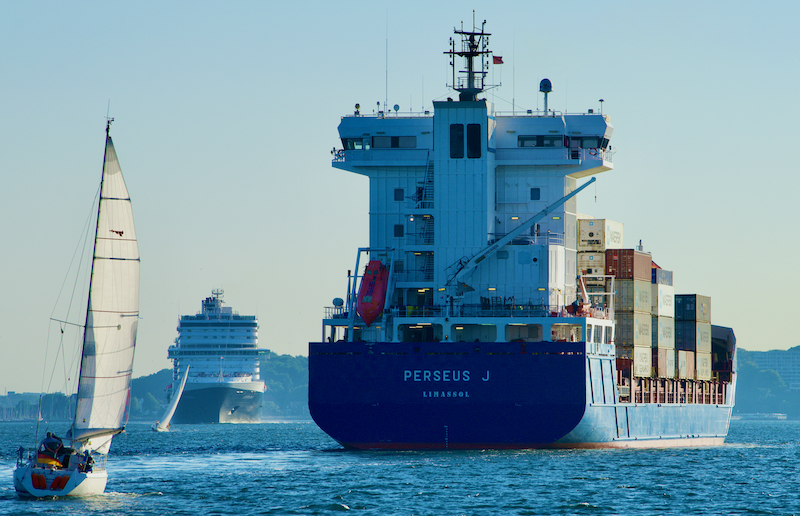Striving for efficiency. With optimisation against the walls of the VUCA world.
Some consider the VUCA world to be a fashionable term, invented in order to prettify things that have long been known or, even worse, to sell banalities as profundity. The very clever even consider it to be a kind of Americanisation of the West.
(If you want to find out more about the VUKA world, take a look at this article here).
Well, all this may or may not be true. The following train of thought hardly needs any of that. That's why I'd like to start by asking for a little composure, emotional generosity and, above all, undivided attention. Because even if the "logic" is catchy and quickly grasped, it can certainly be considered understood overall, you are by no means immunein the heat of your day-to-day business to fall right into the efficiency trap. But don't worry, you'd be in good company, because others feel the same way, including myself.
The thesis is:
The efficiency champions are in danger of crashing and sinking and failing all along the line - because of the VUCA world.
If you are 100% efficient, you have no buffer, you cannot react to the unexpected, your diary, to-do list and other calendars are full to bursting. Full speed ahead with full capacity utilisation. But the unforeseen and unexpected doesn't wait, it overturns everything that has been planned. This is not only the experience of the "broke", but also of the planning, optimisation and efficiency masters, who seemingly couldn't even hold their heads up high in their graves.
Pilots know the danger of striving for efficiency only too well, they call it Coffin Corner
This is a very fitting image that Amel Karboul in her book Coffin Corner used for this: The coffin corner.
This coffin corner is the altitude at which the maximum speed of the aircraft is also the minimum speed that is urgently required at these altitudes. Anyone flying slower at these altitudes will cause the air film that keeps the aircraft in the air to break. If you want to fly even higher, you will also tear the air film because, as we all know, the air gets thinner. And why on earth don't they fly lower? Because the air resistance and therefore the braking effect would increase, which in turn would increase fuel consumption. On top of that, the speed would decrease. Not so economical for the company. After all, customers want to get to their destination faster and cheaper. And the risk... well, there are laws, insurances and blind spots for that.
But this is no place for customer bashing.
Let's take a look at the situation from the point of view of efficiency and optimisation: The higher the aircraft flies, the faster it has to fly and the less fuel it consumes! If there wasn't this moment when the air film under the wings could tear! It would be the manager's fantasy land! And below this altitude, the airspace is called Coffin Corner named.
No turbulence, natural unevenness or anything else may occur in this airspace if the aircraft is to land safely again. But this is the norm at these altitudes. The more intense the coffin corner, the more susceptible the aircraft is to bumps and the more likely it is to crash.
I think this metaphor clearly shows the danger that optimisers and efficiency drivers can fall into. It is simply too seductive. You are already on top, but you can fly even faster (less drag) and even cheaper.
Come on, a little bit (more efficiency) is still possible!
In addition, there is the human factor in everyday competition: efficiency and optimisation would only be half the joy of controllers, planners and doers if others were not relegated to second place, or at least a subordinate place. One's own brilliance is also reflected in the imperfection or inability of others.
To give another example that comes to mind - in 2004, the CEO of LeicaHans-Peter Cohn in an interview as follows: "Digital technology focusses on mass, on speed and is therefore, like e-mail, an expression of the times. With mobile phone cameras comes the innovation of private paparazzi. But photography is something different, something contemplative - it will always exist." At that time, Leica was still in business, had the highest sales and profits, but simply missed the signs of the times, even though it was involved in digital technology. Admittedly, Leica's (near) failure was not only a consequence of the pursuit of efficiency, but of the Innovators Dilemma (Christensen)but a significant aspect of not resolving this dilemma (at a higher level) is largely related to the pursuit of efficiency and the idea of optimisation.
(Organisations and) constitutions pass away, administrations exist!
From this perspective, an organisation that seems to be the original of inefficiency can be viewed differently: The administration. It was the German administrative lawyer Otto Mayerwho succinctly expressed the historical experience: „Constitutional law passes, administrative law exists.“ And in this context, the civil law expert Bernd Rüthers („Die unbegrenzte Auslegung“, „Die Wende-Experten“), which emphasises the continuity of the German administration despite the Four system breaks and constitutional collapses(!) has shown. But this is essentially about something else.
It has been scolded for its inefficiency! And rightly so. Quite rightly so. Administrations had(!) a lot of catching up to do in the past decades and truly had room for improvement. This has certainly changed in the meantime. And not just to the delight of citizens and customers! Just ask‘ a self-employed person about his opinion of pension insurance, but the administration has also undergone a profound change (keyword: Agenda 2010, Activating Administration).
What can be learnt from the administration?
But the optimised, perfectionists and efficiency seekers can certainly learn from the administration that it is important, Buffer in a volatile world to have. It is not enough just to be flexible, but also to be able to react flexibly in a volatile, uncertain, complex and ambivalent world. Flexibility takes place above all outside of the conceivable and predictable, reacting to what was not planned. The planners of flexibility tend to forget this! They are still planning instead of practising flexibility. Improvisation would be necessary.
So, we need the "useless" buffer, the flab on our hips; we can't just programme the emergency solution in an emergency. We need the leeway that invites us to play and linger in everyday life, to spin around and recharge our batteries in order to be prepared for the complexity and ambivalence of a volatile world.
This has long since been recognised in the sciences, where it is referred to as the "science of the future". slack-related problems is taken up. And it is precisely here that the polar attitudes can be seen: On the one hand - in the context of resource allocation - slack is seen as waste, dysfunction and inefficiency, on the other hand as an excellent reserve, an important resource for creativity potential and an emergency buffer. Slack spaces can also be seen as "imbalance balancers" that can take on even more far-reaching functions in organisations.
However, companies that have been thoroughly optimised for many years can, and this should be the final conclusion for today, worry less about a lack of efficiency and the need for further optimisation. It is not uncommon for companies to find themselves in a bottomless pit in a world that no longer fills barrels.
Strategic dialogues offer mental slack spaces
Rather, the VUCA world invites us to develop (completely) different potentials, e.g. to learn how to deal with paradoxes and endure contradictions, to plan less, but to challenge and assert ourselves more often outside our comfort zone, to prove ourselves in the storm and to improvise. However, all this is not to regain control of the situation and restore the supposed normal state of what can be planned, but to learn acceptance and discover personal control options in the storm. This is only possible if perspectives are changed. For example, in strategic dialogues in which the Space for Listen is guaranteed and debates are ruled out. In all of this, it is helpful to test and get started without knowing exactly where it will go and how and what will come out of it, in short: to consciously face the world in a way that corresponds to childlike curiosity; everything is new, everything is fascinating, nothing is boring.
This reminds me of Picasso, who took years to be able to paint like a child again. And indeed, in view of his fabulous oeuvre, it is somewhat reassuring to realise that: He was a u c h efficient.





Leave A Comment